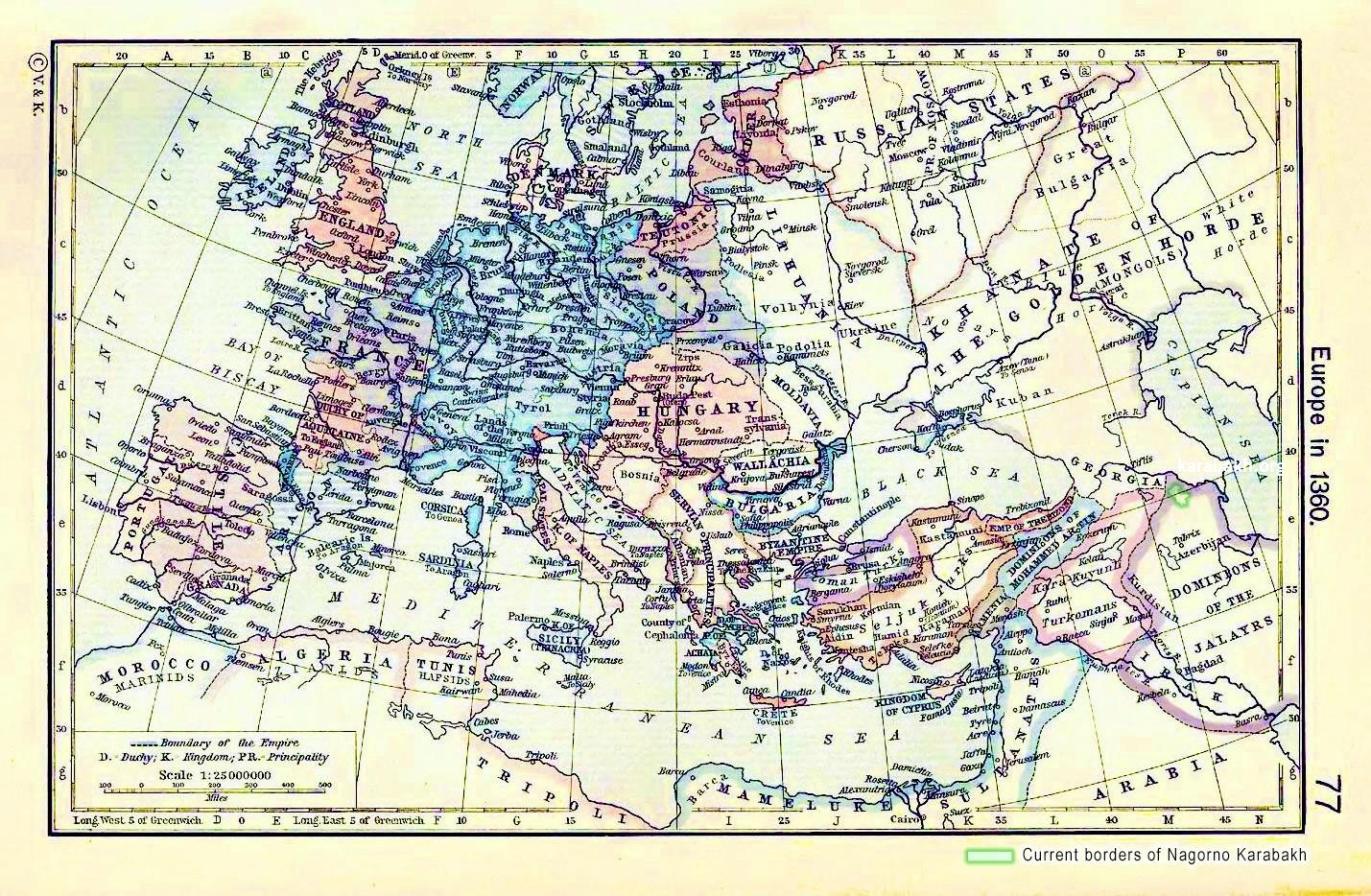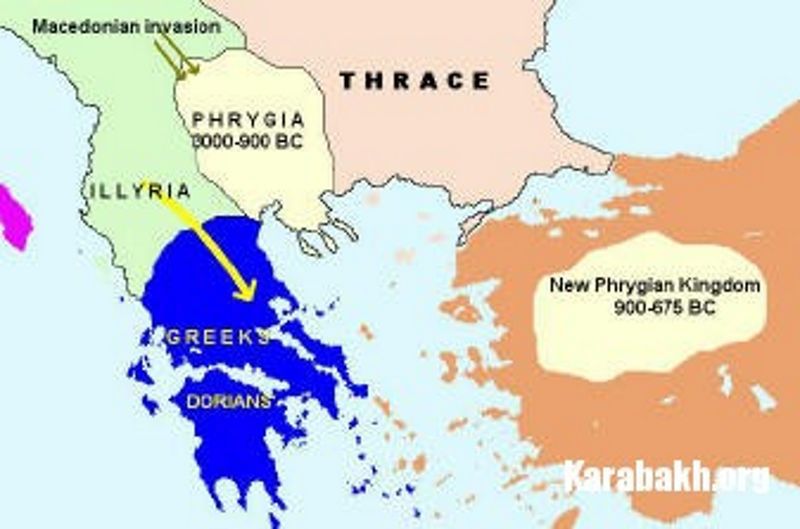Apparently, by such deception, the Armenians were attempting to use the conditions created by the closed discussion around the Moscow Treaty for the advancement of their own claims on Karabakh and to enlist the Center’s support in this game. Behind the actions of the Armenian leadership, which was silent during the Moscow Conference but now spoke out with claims to Soviet Russia, stood the desire to receive compensation. In more concrete terms, “the subject of compensation” would have to be Karabakh. As concerned the repeated introduction of the discussion of the question about Nagorno-Karabakh on July 5, this as we see took place precisely at the insistence of G. Ordzhonikidze and A. Nazaretyan. Certain Armenian authors for obvious reasons mistakenly write that it was not A. Nazaretyan, but N. Narimanov who on July 5, together with G. Ordzhonikidze, raised this issue (Melik-Shakhnazarov 2008, p. 311).
The mistaken view that the decision making Nagorno-Karabakh part of Azerbaijan happened on July 5 only because of the pressure of I. Stalin is again repeated in the article by V.A. Zakharov and S.T. Sarkisyan, published in Moscow (Zakharov & Sarkisyan 2008, p. 221). However, it is known that Stalin was in Tiflis already from the end of June 1921. Apart from this, why at all did I. Stalin arrive in Tiflis at that time? This question is answered by materials of the plenum of the Central Committee of the KP(b) of Georgia, which took place at the same time as the plenum of the Caucasus Bureau of the Central Committee of the RKP(b). Thus, on July 7, the plenum of the Caucasus Bureau of the Central Committee of the RKP(b) continued its work and, with I. Stalin present at the session, the decision was adopted to join to Armenia the neutral zone between Georgia and Armenia. At the very same session, the second issue taken up was the proposal to unite to Armenia the districts of Akhalkalaki and Khram. That issue was transferred for consideration by the Central Committee of the KP(b) of Georgia so that it could be addressed at the next plenum.
The documents reveal that a plenum of the Central Committee of the KP(b) also took place on that same day, one at which all members of the Caucasus Bureau of the Central Committee of the RKP(b) except for N. Narimanov were present. There is even a note featured in the protocol that all members of the Caucasus Bureau of the Central Committee of the RKP(b) arrived at the session at 11:00 and that I. Stalin and G. Ordzhonikidze arrived at 12:25. The first issue discussed was the Batumi issue. I. Stalin was asked to make a report about the course of his talks with the Adzhar delegation. The next issue was related to N. Narimanov’s declaration at the July 5 session of the Caucasus Bureau of the Central Committee of the RKP(b) about the need to intensify work among the Muslim population of Georgia. The plenum proposed to the Central Committee of the KP(b) of Georgia to use Omar Faig [Nemanzade] to this effect.
The agenda of the plenum of the Central Committee of the party on July 7 included the issue “on the establishment of a peoples Commissariat for the affairs of Muslims of Georgia.” The plenum, however, only approved the establishment of a special institution for the affairs of Muslims of Georgia, while for the definition of the organizational forms and functions of this institution a commission was established, with Omar Faig in charge and Kavtaradze, Kvirkeli, and Tumanov as its members. A request was also forwarded to the Central Committee of Azerbaijan to send three or four Communists-Muslims meant to form the nucleus in the institution being organized.
The plenum then discussed two additional issues (“On the press” and “On the activity of the Extraordinary Committee of Georgia”) and passed on to the main question, which was the reason I. Stalin had come from Nalchik to Tiflis, namely, the issue of the replacement of the leadership of Georgia. Filipp Makhardze, the chairman of the revolutionary Committee of Georgia who had been sticking to a relatively independent line in administering Georgia and had therefore been in tense relations with G. Ordzhonikidze, did not satisfy the Central Committee of the RKP(b). Under the pretext of the difficult situation in the country, I. Stalin proposed removing F. Makharadze from the post of chairman of the Revolutionary committee of Georgia and naming to this position Budu Mdivani. By a majority of votes—six votes in favor, four abstentions; including the members of the Caucasus Bureau nine votes in favor and four abstentions—B. Mdivani was named the chairman of the Georgian Revolutionary Committee.





